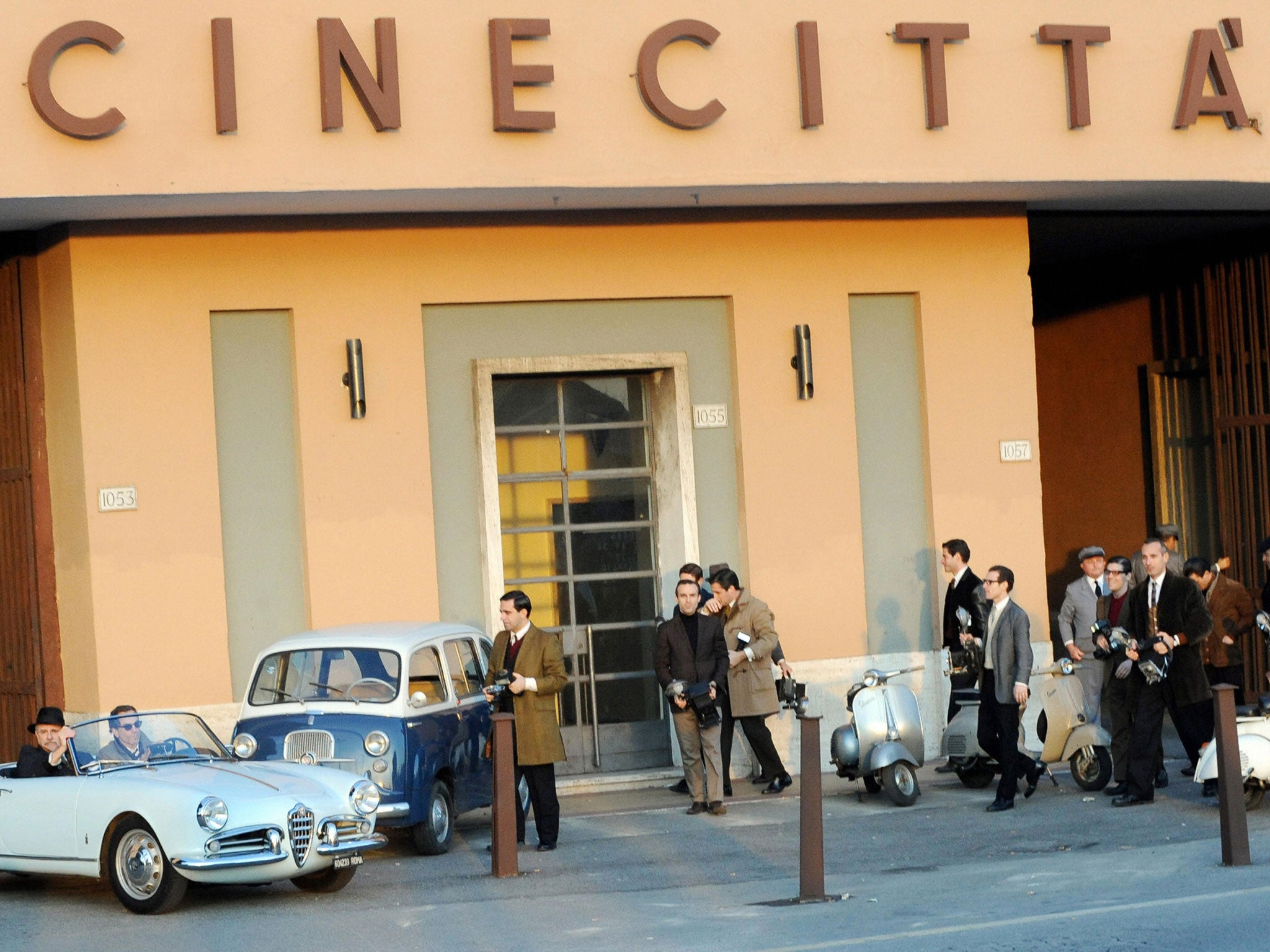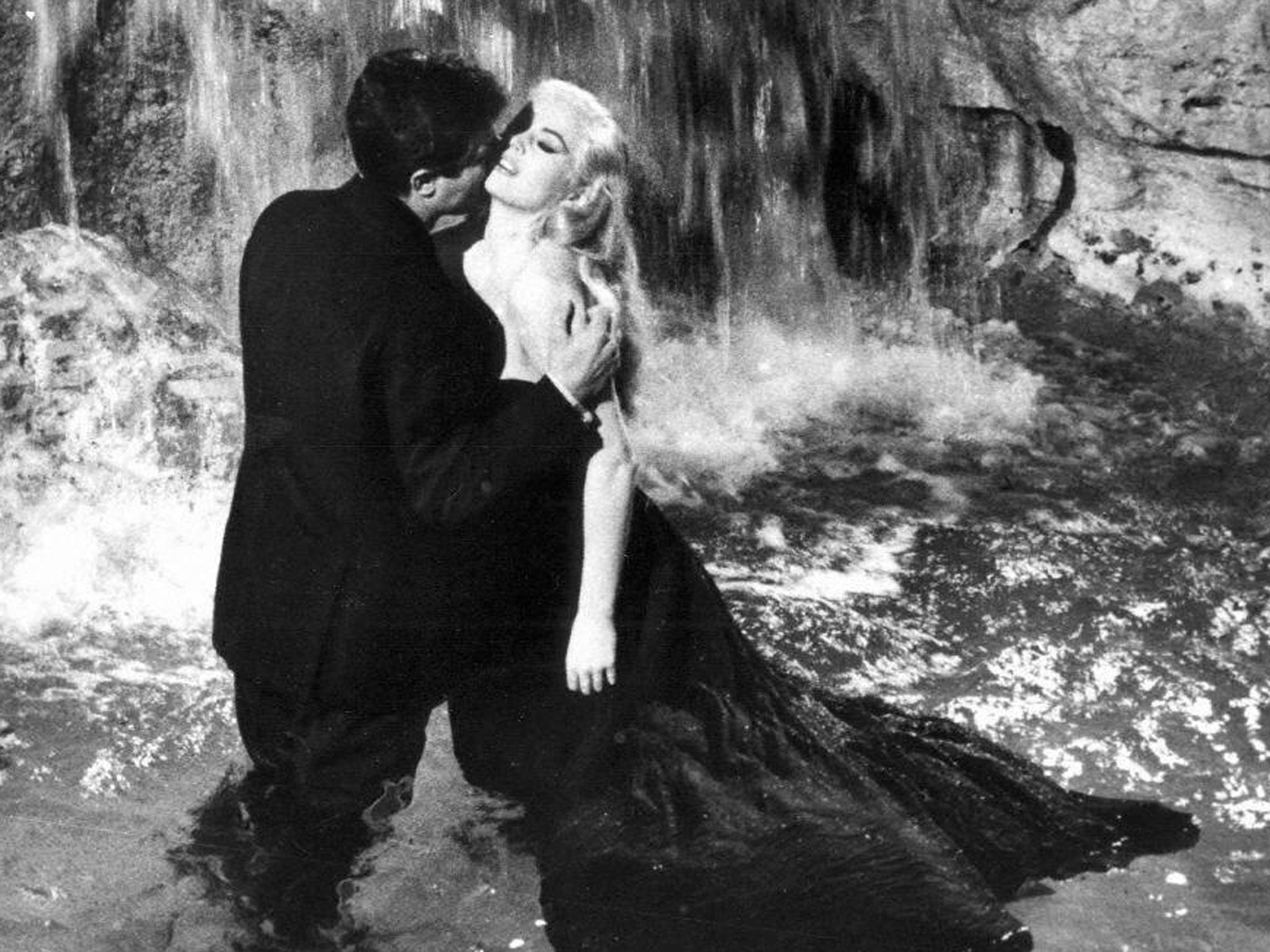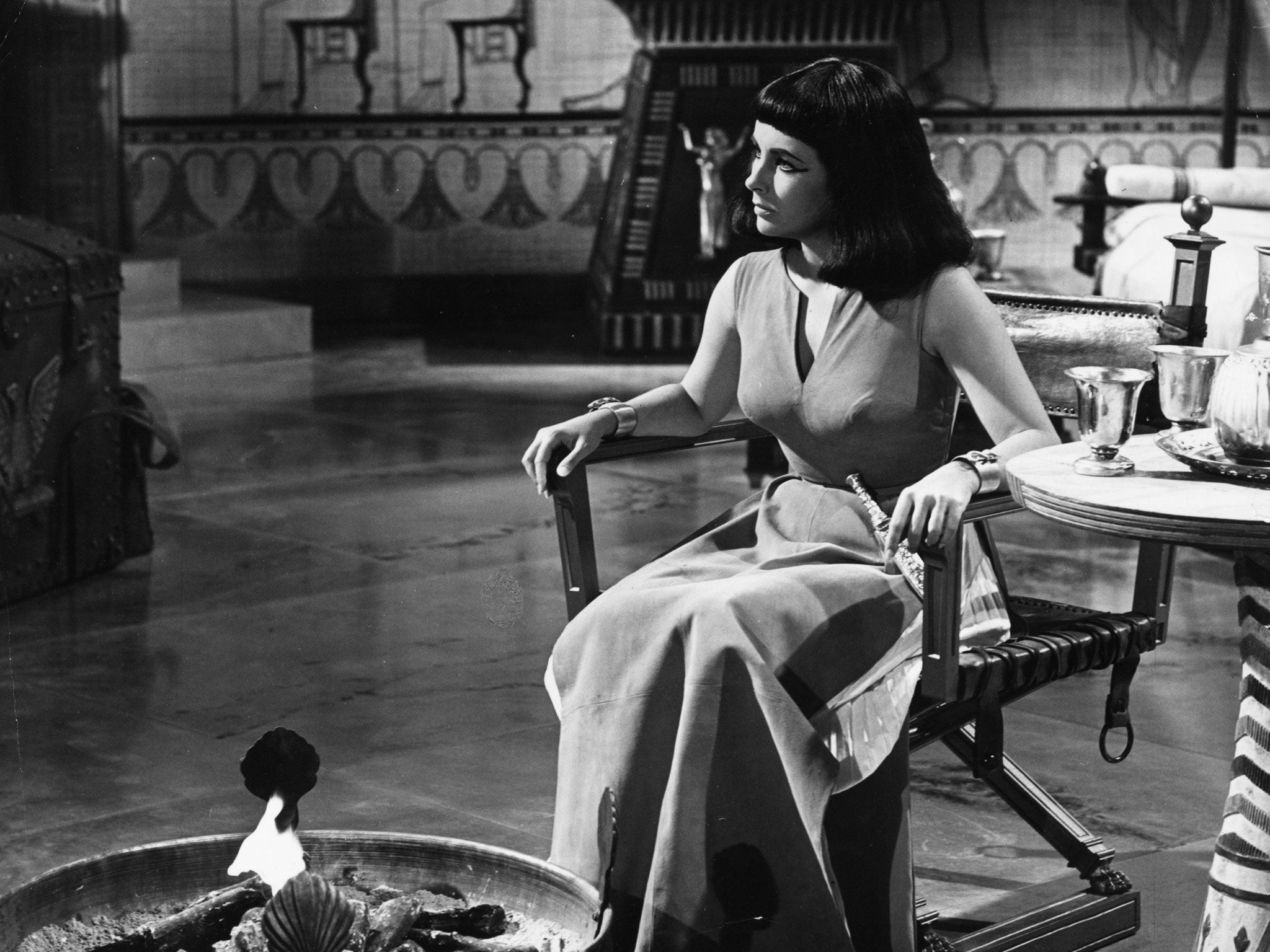Decline and fall of Rome’s cinematic empire: The end for Italy’s famed Cinecitta studios?
Another fire and falling returns could spell the end for a famed studio complex

Your support helps us to tell the story
From reproductive rights to climate change to Big Tech, The Independent is on the ground when the story is developing. Whether it's investigating the financials of Elon Musk's pro-Trump PAC or producing our latest documentary, 'The A Word', which shines a light on the American women fighting for reproductive rights, we know how important it is to parse out the facts from the messaging.
At such a critical moment in US history, we need reporters on the ground. Your donation allows us to keep sending journalists to speak to both sides of the story.
The Independent is trusted by Americans across the entire political spectrum. And unlike many other quality news outlets, we choose not to lock Americans out of our reporting and analysis with paywalls. We believe quality journalism should be available to everyone, paid for by those who can afford it.
Your support makes all the difference.It has created cinema classics from Ben Hur to the neo-baroque masterpieces of Federico Fellini. But now, following the third mysterious fire in six years, the drama at Rome’s Cinecittà studios appears to concern the site itself.
A dispute between studio workers, the government and the studio’s private majority owners has fuelled suspicions over the cause of the latest blaze, which tore through the set of Italian Big Brother on 15 December. Police are now investigating.
In July 2012 another fire swept through the site’s famous Teatro 5, Fellini’s studio of choice, just before the owners were due to meet with unions and workers. A blaze in 2007 destroyed sets of the BBC/HBO series Rome.
The battle for the heart and soul of Cinecittà, which was created to the south of the capital by Mussolini in 1937, comes as the private owners seek to develop the Cinecittà brand, and, according to the US entertainment weekly Variety, transfer some staff.
The plans come on the back of falling film production revenues. The government sold 80 per cent of its stake in the nearly bankrupt studios to private investors 16 years ago.
But despite government incentives, including a 25 per cent tax break, to attract film makers, Cinecittà has failed to see the benefit. Today the site, where Fellini shot La Dolce Vita and Satyricon, is more likely to host gala dinners and private parties than Oscar-winning film makers.
On Friday, the culture minister, Massimo Bray, joined Luigi Abete, the head of Italian Entertainment Group (IEG), which represents the owners, and Rome’s mayor, Ignazio Marino, to thrash out an agreement on developing the site and on use of the Cinecittà brand for leisure services. The results – if any – of that meeting, which coincided with a Fellini commemoration, have not been announced.

IEG points to plans for a hotel and a new studio, plus restaurants and underground parking, as evidence that it is serious about maintaining and improving the site. Critics, including workers, say the plans are further evidence of the private consortium’s plans for film production to take a back seat to corporate entertainment. The owners are also demanding a reduction in the €2.5m (£2m) annual rent.
Alberto Manzini, a spokesman for the CGIL union, told La Repubblica newspaper that the future of the site and even the future of Italian cinema was at risk following doubts over investment in production facilities. “It was expected there’d be a €7m investment for film production. But we still don’t know if anything’s been spent,” he said.
At last Friday’s meeting Mr Bray articulated the governments official line, that Cinecittà, a unique part of modern Italian artistic culture, must remain an important and viable film production site.
“This day, dedicated to Fellini, has allowed Cinecittà to reunite so many artists, who, like Fellini, are linked to the history of this place and who continue to ensure it lives with their film making,” Mr Bray said.

“We hope that Studio 5 can continue to attract for many years the creativity and passion of many Italian and international artists.”
On the Adriatic coast, the town of Rimini, Fellini’s birthplace, is holding Christmas and New Year’s Eve celebrations with giant video projections themed on the master director.
But in Rome, fans of Italian cinema are less sanguine. Unless the will – and money – from the private stakeholders is forthcoming, Cinecittà, the scene of so many cinematic triumphs, may yet become just another crumbling theme park.
Join our commenting forum
Join thought-provoking conversations, follow other Independent readers and see their replies
Comments